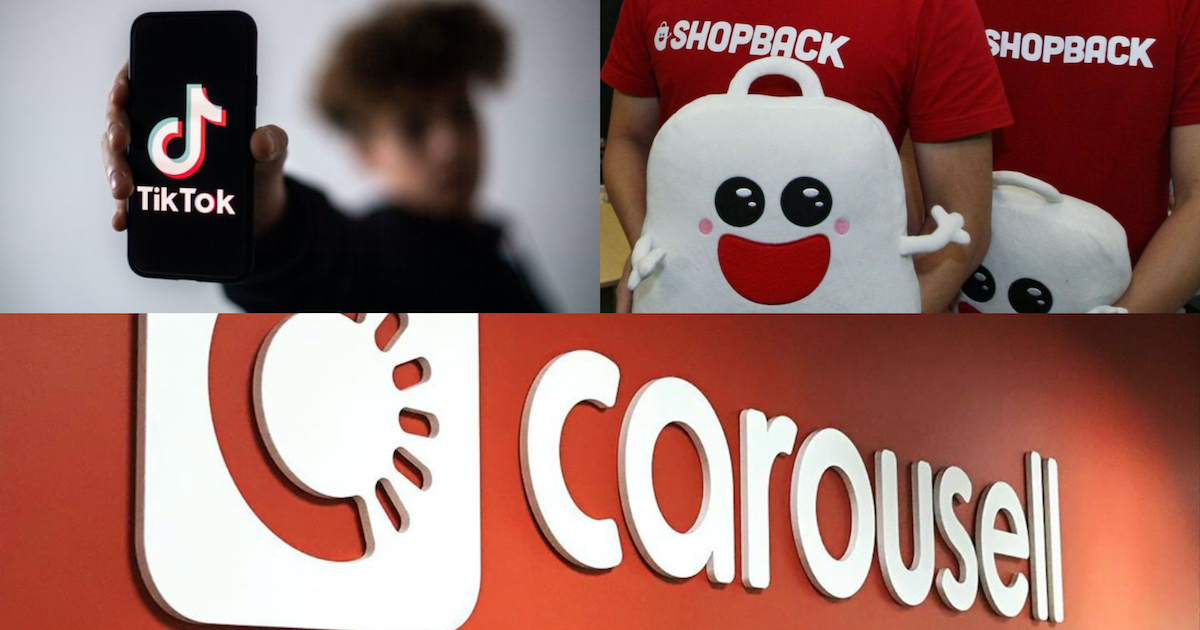Who else is ready to become the next super app?
A super app is a platform developed by a company offering various services under one umbrella. For example, China’s WeChat, which started out as a messaging app, has expanded into payments, shopping, food ordering, cab services, and many other functions to become a super app.
Since a user can do so many things on a super app, it negates the need to use any other apps that offer the same services.
A country or a region can be considered as super app-ready when the large base of its population is primarily accessing the Internet through smartphones, and if their local apps ecosystem is not yet fully developed.
Its population also needs to be comfortable with the idea that a super app will have the power to harvest massive data collection to predict consumer behaviour.
As such, Asia — which is still largely developing and with a strong appreciation towards community cooperation and compliance — has become a prime region where the concept of super apps takes off, compared to other countries in the West that value privacy and individual freedom more.
In Southeast Asia (SEA), big tech players are already racing to become super apps, hoping to replicate the success of WeChat in China.
Leading the pack are companies such as Grab, Gojek, AirAsia, Shopee and Lazada, which are all offering a slew of services outside of their initial core offerings.
Singapore in particular, is a good example of a country where it will be easy for super apps to be adopted. Our small size and population makes it easy to spread trends and push nationwide adoption.
More than 90 per cent of Internet users in SEA are on mobile. And according a Google report, Singapore has one of the highest smartphone adoption rates in the world.
Furthermore, Singaporeans tend to trust and cooperate with centres of power that use data to aid technology development and streamlining of processes; much like what GovTech did with Singpass, which is underpinned by the National Digital Identity.
What Does It Take To Be A Super App?

According to Akshay Chopra, Visa’s Vice President (VP) of Innovation and Design, there should be three things in common to create a super app sweet spot: a large user base, technical expertise in building apps with great User Experience (UX), and a high level of trust of their users.
There are three other factors to develop successful super apps:
1. Modular Approach In Rolling Out Offerings
This means companies do not have to become a super app from the get-go. Instead, they can develop and add new services over time in adjacent areas, and they don’t even have to get it right straight away.
Considering this, all the tech apps today that only offer one service have the potential to become a super app.
2. Providing A Platform For Other Organisations To Build Upon
The key to swift scaling is creating the super app as a platform in which other organisations can offer applications and services.
For example, while WeChat made steady progress from the outset, it was only when it opened up its platform to outside developers in 2017 that the app started to achieve its current dominance, topping a billion active monthly users in early 2019.
3. Open Loop Commerce And Interoperability
While many apps start with a closed-loop payment system, all successful super apps move to open-loop payment services provided by a card scheme as a foundation for other services, such as online marketplaces or ride sharing.
Moreover, linking banking and financial institutions outside the app provides customers with a sense of safety, security, and trust. Financial and banking services are considered “high trust” platforms and one is unlikely to access these services through their social media applications.
There is also the benefit of tapping into an established financial institution’s network of merchants and customers, cross-border payment functionalities, security measures and other infrastructure.
Imagining The Potential Super Apps
Outside the tech players that have openly declared their super app ambitions, are there any other tech startups that have the potential to become super apps in Singapore and the surrounding region?
Based on evaluating the common factors that make or break a super app, here are three tech companies that have the means, capability and potential to become the next super app:
1. Carousell

Carousell is an online marketplace for buying and selling new and secondhand goods. Headquartered in Singapore, it also operates in Malaysia, Indonesia, the Philippines, Cambodia, Taiwan, Hong Kong, Macau, Australia, New Zealand and Canada.
Carousell covers an impressive number of categories of goods and services from travel to luxury to educational programs, to food and even job posting. It is easy to imagine Carousell developing some of its features to become more of a one-stop platform for customers.
As of June 2018, 158 million products have been sold on Carousell. Carousell will aim for profitability in the next four years, and founder Quek Siu Rui said that the possibility of exiting is on the horizon.
With the profits, one potential product roadmap is to utilize these profit to position themselves into a super app.
With a large and growing user base, and a competent team of engineers and designers, it is not hard to imagine Carousell offering new services via third party applications inside the app.
Carousell could also launch a feature where users or businesses could sell their food and beverages (F&B) offerings, and partnering with a logistics company for delivery, effectively putting themselves in the food delivery space. After all, there are already existing Carousell users and businesses who are already selling food via the platform.

This may go against the original brand mission of Carousell, which is to enable anyone to easily buy and sell secondhand products. However when it comes to grocery deliveries, Carousell could potentially and easily work with brands such as Sheng Siong or NTUC to sell their groceries via Carousell.
2. ShopBack

ShopBack is a cashback reward program, available across Asia Pacific with over five million members on its platform.
It allows online shoppers to receive a small percentage of their purchases on the platform, paid through affiliate programs by the merchant. The platform also provides coupons, voucher codes, and comparison features.
ShopBack acts as a gateway for online merchants, where they would earn a commission for each purchase made via ShopBack, and that commission amount is given back to our customers in the form of cashback.
It is available in nine countries and currently partnering 1,300 brands all over the world, including major online marketplaces such as Amazon, Lazada, eBay, Grab, Shopee, Booking.com, and Alibaba.
In its 2018 insight review, ShopBack describes itself as a “one-stop lifestyle platform” to make smarter purchasing decisions. It also adopts a very aggressive mobile-first strategy to engage their customers.
Today, the company has more than 19 million users, providing cashback in categories that include travel reservations, general merchandise, food delivery, groceries, fashion, and health and beauty.
ShopBack has also expanded into physical stores in Singapore, enabling users to get rewards for entertainment, dining and in-store commerce.
According to ShopBack CEO and co-founder Henry Chan, moving forward, the company has immediate plans to grow ShopBack’s data capabilities and to bolster its technology infrastructure.
As a deals and cashback app, Shopback can easily launch a ShopBack Pay function if it starts to develop its own wallet linked to customers’ bank account.
If it rolls out other features to aid customers purchasing experience with partner merchants, for example, delivery service for goods and services purchased from partner merchants via Shopback, the company could be well on its way to be the next super app contender in the region.
3. TikTok

Owned by ByteDance, a multinational Internet technology company headquartered in Beijing, TikTok is a video-sharing and social networking service app that is a relatively new player in Southeast Asia.
Known as Douyin in its home market, it was launched in China in September 2016. It was pushed out globally as TikTok the following year.
Thanks primarily to TikTok, ByteDance‘s 2020 revenue stood at US$35 billion, which was an increase of more than 100 per cent than the year before. TikTok was rated the world’s most-downloaded app of 2020, and the second-highest for consumer spend after Tinder.

TikTok app reached its peak for downloads in the first quarter of 2020, when it was downloaded 315 million times, according to Sensor Tower – this is more than any other app in history over a single quarter.
According to App Annie’s State of Mobile 2020 report, Android TikTok users spent in excess of 68 billion hours using the app in 2019. This represents a significant 210 per cent increase over 2018.
Already in China, the average daily time spent on Douyin, according to Trustdata TikTok statistics, increased from 17 to 27 minutes between September 2018 and September 2019. Meanwhile, in the same year, the mighty super app WeChat saw daily usage fall from 40 minutes to 31 minutes.
As of 2021, TikTok has become one of the world’s best-loved apps especially for younger millennials and Generation Z. Surveys have shown that TikTok’s funny and easy-to-digest short video content makes the user experience very pleasant and addictive.
ByteDance and TikTok’s Ambition For Expansion Has Just Started

Earlier this year, ByteDance rolled out Douyin Pay in China to allow the buying of virtual gifts for live-streamers or items from shops on the platform. There are also plans to launch third-party payment services in Southeast Asia as well.
In 2019, TikTok launched a live-streaming content, in which users can buy and gift tokens for their favourite influencers.
TikTok will soon roll out a feature to allow online shopping through their app. For instance, it will allow brands and small business to advertise and sell their products on their platform. Meanwhile, influencers can link their sponsors’ goods and services on their channels so that fans can purchase them on the spot.
Famous TikTok influencers are making good income, with 22 million content creators making a collective US$6.15 billion on Douyin over the course of 2020, according to ByteDance. Most users also think that advertisements on TikTok are unique and that they blend natively with original content.

TikTok has started to partner with other media and content apps such as Netflix and Spotify to produce entertainment for customers. Netflix has recently announced a reality TV show with TikTok’s most controversial influencers.
This cross-app collaboration will continue to blur social networking and streaming platform, and open avenues for all sort of new and exciting content production.
Meanwhile, in November 2020, ByteDance announced its plans to enter the grocery group-buying sector in China, thus furthering its ambitions to become a legitimate player in the e-commerce industry.
ByteDance has also been developing its’ online gaming products for a few years now, and has recently ramped up its efforts in this sector.
Two recent deals evidence these ambitions. In March, it acquired Moonton — a Chinese game company founded by a former Tencent employee — and bought C4-Games this month.
Judging from the growth and popularity of TikTok, everyone should come to the same conclusion that the future expansion and market potential of TikTok is uncapped. Based on their exponential growth so far, it will be only a matter of time for the company to convert their young and addicted mass following to subscribe and purchase different offerings.
ByteDance just needs to find out a way to integrate all their varied business endeavours into a single TikTok platform to transform it into a super app.
Whatever else TikTok wants to do in the future, from e-commerce to ride sharing to food delivery, chances are they will be able to do it. They have the potential to become a bigger super app than WeChat, and one that is not limited to China and Asia, but omnipresent all over the world.
Super Apps In SEA Will Be Niche and Specialised
Despite the potential of many apps to become super apps, Chopra said that it is “unlikely” that future super apps can replicate WeChat in terms of ubiquity and breadth of offerings.
The likes of WeChat, Alipay, and Meituan-Dianping wield enormous influence in China in due part to China’s size and relative homogeneity as a market. This isn’t the case for Southeast Asia, where the likes of Grab and Gojek will find it difficult to achieve WeChat-level ubiquity
Each country in the region has different needs, and each platform needs to adjust to address that demand. Expanding a super app regionally means facing competition that’s either going down to the same super app path or focused on a specific service for that local market.
Yinglan Tan, founding managing partner of Insignia Venture Partners
Yinglan suggested that a method that might find better success in the region is a “hyper-vertical super app” model. Instead of tackling multiple sectors in one app, the hyper-vertical platform focuses on covering the entire customer journey around a singular product or vertical.

One example is Carro, which started out as a used-car marketplace, but has since evolved to provide a variety of services for car owners, from repairs and maintenance to same-day insurance and financing.
By becoming an all-in-one platform for car owners and dealers, users will repeatedly use Carro’s services for a longer period, Tan explained.
Meanwhile, Chopra proposed three potential niches for the future of Southeast Asian super apps.
The first niche is ‘high trust’ super apps on which banking and financial services are carried out. Next, practical super apps offering grocery, food, and ride-sharing services. The potential third niche would be ‘fun’ super apps that include social, chat and marketplaces for niche goods.
Following this line of projection, it seems that the super apps race in Singapore and Southeast Asia is not going to conclude with a hegemony, and a “winners take all” kind of ending. Rather, all the big players will reign over various different domains, disrupting the old ones and creating unthinkable new ones.
Therefore, super app’s main missions to become the app that commands most of customers’ time and attention must be redefined. Customers will get to choose which one-stop solution they need the most at any given point in time.
Ultimately, the future of Southeast Asian’s super apps market will be one that is more collaborative and inclusive.
Featured Image Credit: Loic Venance via Getty Images / The Business Times / @xyz_lab via Instagram










